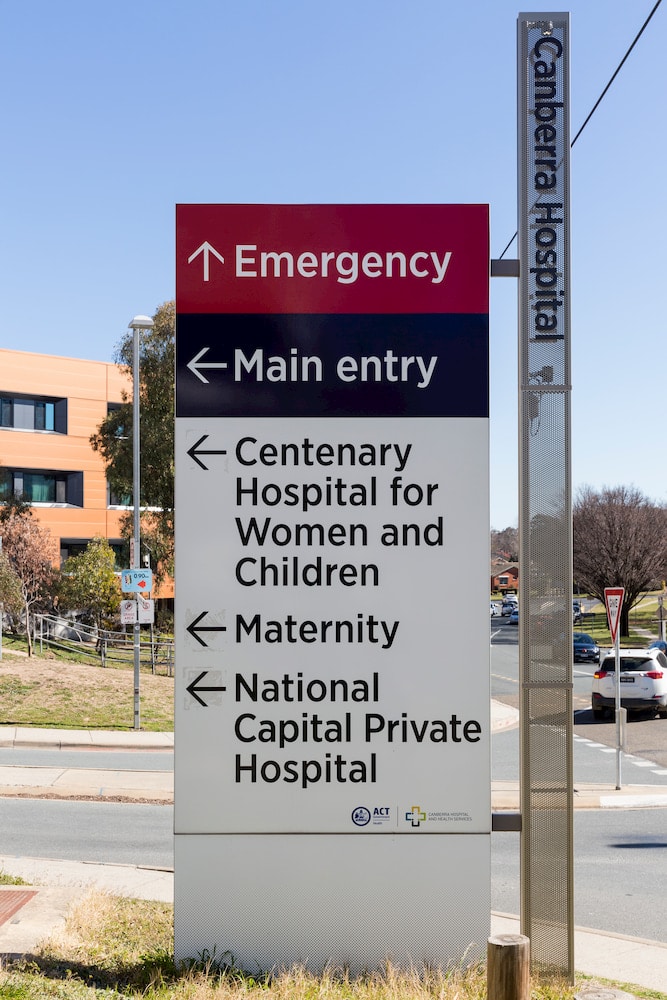Updated 4:47pm 20/01/21
In a bid to prevent further disruptions to education and childcare, ACT education unions are advocating for teachers and support staff in schools and early childhood settings to be categorised as frontline essential workers and a priority group for vaccination.
Representing teachers and school assistants in ACT public schools, the Australian Education Union ACT branch (AEU ACT) passed a motion this morning, Wednesday 20 January, calling on the ACT Government to negotiate prioritised vaccine rollout for its membership.
AEU ACT secretary Glenn Fowler said the union understood workers in front-line health care, aged care, disability care and quarantine and border facilities must be the immediate priority.
“We’re not looking to kick anyone else back down the queue – but we are an essential service, we proved that in 2020,” he said.
Mr Fowler would like to see his membership vaccinated alongside groups like emergency services, police and defence force personnel, given teachers work “face-to-face with the community” like frontline workers.
“We’re the same. Don’t forget us.”
He said physical distancing between adult colleagues was very difficult in a school setting and parents “need to be reassured that schools are safe places”.
In a statement yesterday, 19 January, Independent Education Union of Australia (IEUA) NSW/ACT branch secretary Mark Northam said vaccinating teachers and support staff early would benefit the entire community.
“It takes just one case of COVID-19 to shut down an entire school, impacting hundreds, sometimes thousands, of families – disrupting learning and impeding parents’ and guardians’ ability to work,” he said.
The IEUA NSW/ACT Branch represents over 32,000 teachers, principals and support staff in Catholic and independent schools, early childhood centres and post-secondary colleges.
All ACT schools were effectively closed for four to six weeks last year when Education Minister Yvette Berry announced a switch to remote learning on Sunday 22 March 2020.
AEU ACT’s Mr Fowler said ACT educators were better placed than any other jurisdiction to adapt to working remotely in 2020, but “teachers want to be at school”.
“Another thing that period showed the world is that there is no substitute for school-based learning.”
Since the pandemic hit Australian shores in 2020, more than 50 NSW schools have been forced to close due to a confirmed case of COVID-19, and nearly 20 early childhood centres have been affected.
Two ACT schools had COVID-19 scares last year, the first at Lyneham High School when a student contracted the virus, which resulted in the closure of the school for three days to allow for deep cleaning and contact tracing.
The second was a case connected to Telopea Park School; however, an ACT Health investigation determined the school did not require closure.
IEUA NSW/ACT also drew attention to the cost of deep cleaning school premises, which can amount to “tens of thousands” of dollars and take several days to complete.
An ACT Education Directorate spokesperson told Canberra Daily advice on COVID restrictions being applied in schools will be provided ahead of the 2021 school year.
“The Education Directorate has comprehensive plans in place to respond to any COVID-19 case affecting an ACT public school,” the spokesperson said.
School staff are already classified as frontline essential workers and prioritised for vaccination in the United States, as directed by the Centre for Disease Control and Prevention.
In the United Kingdom, the four UK Children’s Commissioners tasked with protecting the rights of children have publicly requested teachers be vaccinated as soon as possible.
“It would be a vital first step in limiting the devastating impact of the pandemic on children’s rights this year, which may well have consequences for years to come,” the Commissioners said.

The full details of Australia’s COVID-19 Vaccine and Treatment Strategy are yet to be finalised.
At this stage, the first group to receive the jab will include frontline health workers; aged care and disability care workers and residents; and quarantine and border officials.
The second group will likely include elderly people and Aboriginal and Torres Strait Islander people over the age of 55.
Describing Australia’s vaccination strategy earlier this month (7 January), Prime Minister Scott Morrison said the current plan included five phases of priority populations spread over the course of the year.
Australians will receive either the Pfizer or AstraZeneca jab, which Health Department secretary Professor Brendan Murphy described as “two of the most promising vaccines”.
Mr Morrison said he hoped four million Australians – 16% of the population – would be vaccinated by the end of March.
“We anticipate optimistically that we would hope to start the vaccination with around 80,000 vaccinations a week,” he said.
Federal Health Minister Greg Hunt said vaccination priority groups were determined by medical experts.
For more news:



